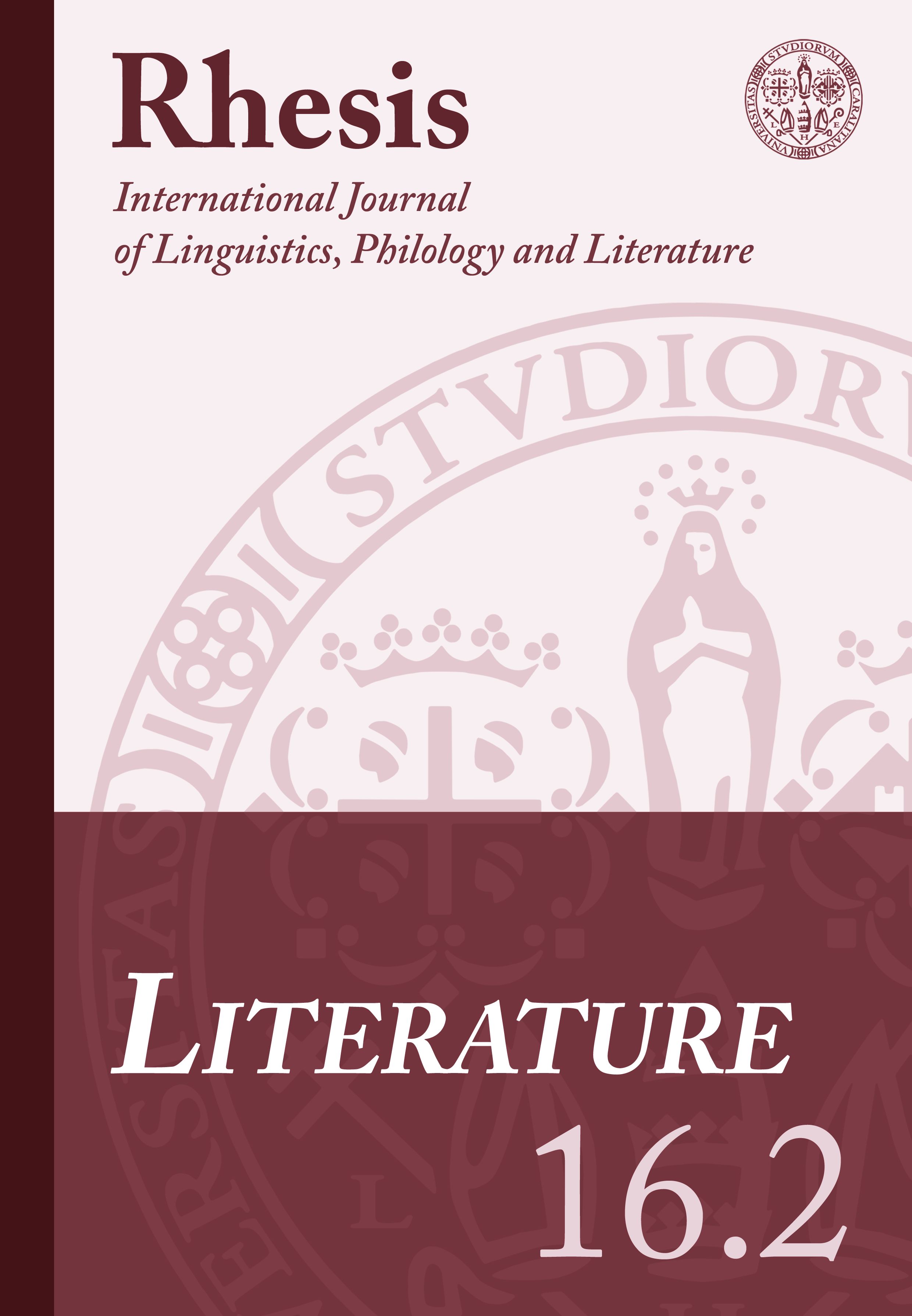Ecocritical perspectives:
Reconciling the Two Cultures in Charlotte McConaghy's Migrations
Abstract
The divide between the humanities and the natural sciences is often seen, still nowadays, through the lens of the famous “two cultures” controversy surrounding C. P. Snow’s 1959 lecture. The purpose of this paper is to reconsider this much debated question in the light of the emerging field of ecocriticism, which is devoted to understanding and explaining the literary representation of the relationships between human beings and the natural environment. From this standpoint, Charlotte McConaghy’s debut novel, Migrations (2020), may be considered as an exemplary case of eco-narrative and, more specifically, of climate fiction. The analysis aims at showing how this narrative text is able to embody the core values and specific conditions of the human and physical worlds. The main purpose of this study is to underline how the ecocritical perspective, through genre hybridization and blending, helps bridge the gap between natural sciences and humanities.
Downloads
References
Alerstam, Thomas; Bäckman, Jan; Grönroos, Juha; Olofsson, Pontus; Strandberg, Rune (2019), ‘Hypotheses and Tracking Results about the Longest Migration: The Case of the Arctic Tern’, Ecology and Evolution 9 (17), 9511-9531.
Atwood, Margaret (2006), The Tent, London, Bloomsbury.
Clark, Timothy (2015), Ecocriticism on the Edge: The Anthropocene as a Threshold Concept, London-New York, Bloomsbury Publishing.
Clericuzio, Alessandro (2021), ‘Introduzione. Dall’ecocritica alle ecocritiche’, in Id. (ed.), Primavera rumorosa. Percorsi di ecocritiche, Sesto San Giovanni (MI), Mimesis, 7-16.
Coupe, Laurence (ed.) (2000), The Green Studies Reader. From Romanticism to Ecocriticism, London-New York, Routledge.
Dobrin, Sidney I. (2021), Blue Ecocriticism and the Oceanic Imperative, London-New York, Routledge.
Garrard, Greg (2012), Ecocriticism, London-New York, Routledge.
Ghosh, Amitav (2016), The Great Derangement: Climate Change and the Unthinkable, Chicago, University of Chicago Press; trad. it. di Anna Nadotti e Norman Gobetti (2017), La grande cecità. Il cambiamento climatico e l’impensabile, Vicenza, Neri Pozza.
Glotfelty, Cheryll (1996), ‘Introduction: Literary Studies in an Age of Environmental Crisis’, in Glotfelty, Cheryll; Fromm, Harold (eds.), The Ecocriticism Reader: Landmarks in Literary Ecology, Athens, The University of Georgia Press, xv-xxxvii.
Glotfelty, Cheryll; Fromm, Harold (eds.) (1996), The Ecocriticism Reader: Landmarks in Literary Ecology, Athens, The University of Georgia Press.
Goodbody, Axel; Johns-Putra, Adeline (2019), ‘The Rise of the Climate Change Novel’, in Johns-Putra, Adeline (ed.), Climate and Literature, Cambridge, Cambridge University Press, 229-245.
Hennessy, Rachel; Cothren, Alex; Matthews, Amy (2022), ‘Creating New Climate Stories: Posthuman Collaborative Hope and Optimism’, Text: Journal of Writing and Writing Courses 26 (1), 1-20.
Iovino, Serenella (2006), Ecologia letteraria. Una strategia di sopravvivenza, Milano, Edizioni Ambiente.
Johns-Putra, Adeline (2019), Climate Change and the Contemporary Novel, Cambridge, Cambridge University Press.
Koo, Halia (2019), ‘“On the Edge of Humanism”: Travel Writing at the Intersection of Environmental Concerns’, in Löschnigg, Maria; Braunecker Melanie (eds.), Green Matters: Ecocultural Functions of Literature, Leiden-Boston, Brill-Rodopi, 90-108.
Love, Glen A. (1999), ‘Ecocriticism and Science: Toward Consilience?’, New Literary History 30 (3), 561-576.
Love, Glen A. (2003), Practical Ecocriticism: Literature, Biology, and the Environment, Charlottesville-London, University of Virginia Press.
McConaghy, Charlotte (2020), Migrations: A Novel, New York, Flatiron Books; trad. it. di Laura Prandino (2021), La ragazza che seguiva gli stormi, Milano, Piemme.
Murray, Jessica (2021), ‘Women Navigating the Climate Catastrophe: Challenging Anthropocentrism in Selected Fiction’, Journal of Literary Studies 37 (3), 15-33.
Probyn-Rapsey, Fiona (2022), ‘Animals and Extinction’, in Johns-Putra, Adeline; Sultzbach, Kelly (eds.), The Cambridge Companion to Literature and Climate, Cambridge, Cambridge University Press, 100-113.
Reddick, Yvonne (2023), ‘Seamus Heaney’s Ecopoetry and Environmental Causes: From Conservation to Climate Change’, Green Letters: Studies in Ecocriticism 27 (2), 146-162.
Rueckert, William (1978), ‘Literature and Ecology: An Experiment in Ecocriticism’, Iowa Review 1, 71-86; ora in Glotfelty, Cheryll; Fromm, Harold (eds.) (1996), The Ecocriticism Reader. Landmarks in Literary Ecology, Athens, The University of Georgia Press, 105-123.
Salvadori, Diego (2016), ‘Ecocritica: diacronie di una contaminazione’, LEA-Lingue e Letterature d’Oriente e d’Occidente 5, 671-699, ˂https://doi.org/10.13128/LEA-1824-484x-20059˃ (ultimo accesso: 24/09/2024).
Scaffai, Niccolò (2017), Letteratura e ecologia. Forme e temi di una relazione narrativa, Roma, Carocci.
Schneider-Mayerson, Matthew (2018), ‘The Influence of Climate Fiction. An Empirical Survey of Readers’, Environmental Humanities 10 (2), 473-500.
Snow, Charles Percy (1959), The Two Cultures and the Scientific Revolution, Cambridge, Cambridge University Press; trad. it. di Adriano Carugo (1965), Le due culture, Milano, Feltrinelli.



